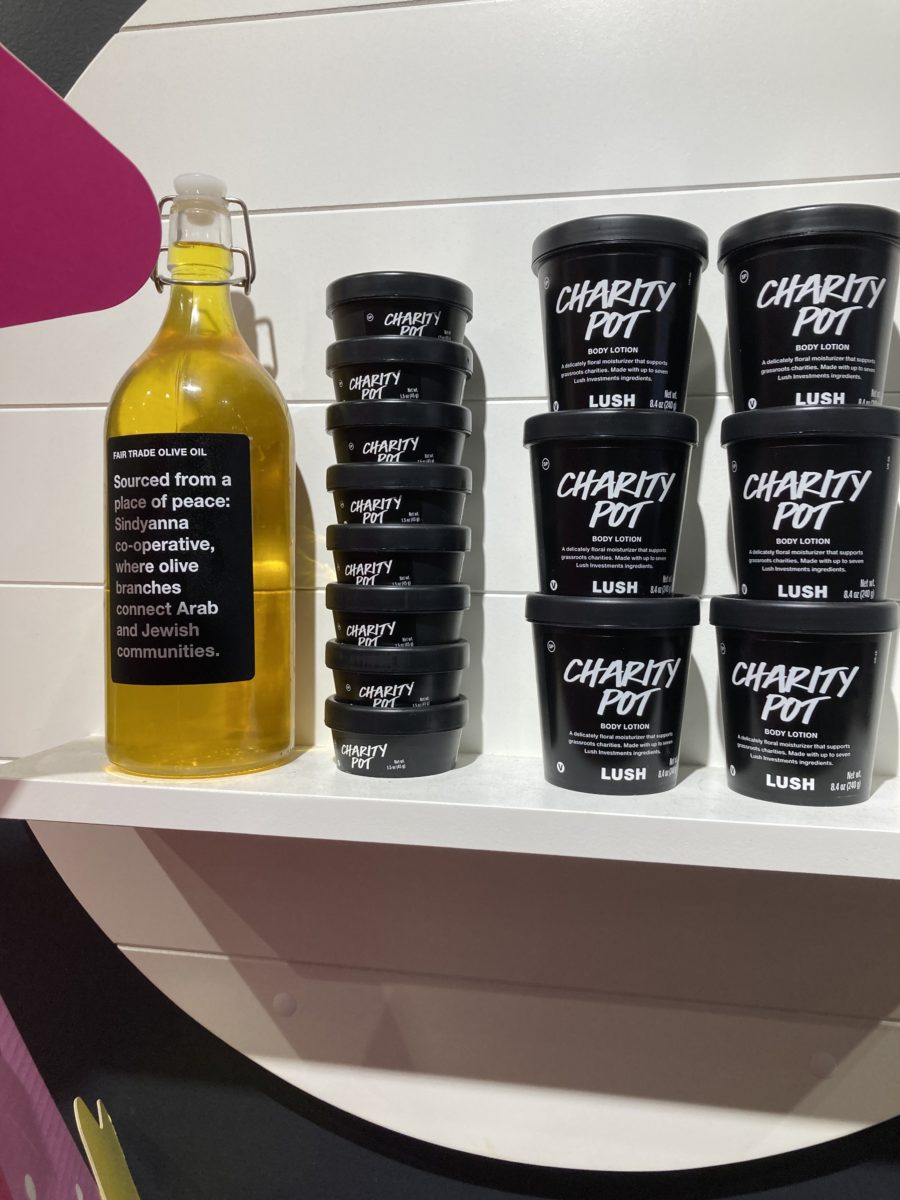Your Daily Phil: Inside Jerusalem’s new Museum of Tolerance + The high cost of traditional Jewish life
Good Wednesday morning!
The high cost of living a traditionally observant Jewish life in the U.S. is at the center of a new study from Nishma Research, an independent research firm.
Surveying more than 1,300 people who identified as Modern Orthodox or Haredi, the study focused on purchases that could be identified as “Orthodox spending”: synagogue and organizational memberships, kosher food and Jewish camps and trips to and from them. Also, real estate in Orthodox communities is generally more expensive, according to the report.
Even with high median household incomes ($188,000 for Modern Orthodox families and $136,000 for Haredi families), fewer than half see their household as financially strong and fewer than half are comfortable that they will have enough money to retire, the study found. Orthodox families may be spending $5,000 more a year on food than non-Orthodox households, the survey concluded, and median costs for children’s education in K-12 Jewish schools was $31,000 (even with financial assistance) and between $4,000-$6,000 for synagogue dues.
“However, it appears that cost does not present an ‘existential threat’ to many in their religious lives as people – while struggling – are drawing strength from their beliefs, practices, families and communities,” Nishma Research President Mark Trencher noted in the report, “For example, when we asked what I would characterize as a ‘bottom line’ question of ‘Orthodoxy costs more; is it worth it?,’ fewer than 10% ‘voted no.’ The vast majority saw great benefit in their Orthodoxy, although we recognize that many had mixed feelings about costs, many were very upset, and anger did come through. So, while they are mostly coping, the extent of the pain shouldn’t be ignored.”
CENTER OF TOWN
A first look inside Jerusalem’s Museum of Tolerance


Eitan Asraf
Over the last 3,500 years or so, few construction projects in the holy city of Jerusalem have piqued as much curiosity or controversy as the Museum of Tolerance. For the last 21 years, Jerusalemites have watched with anticipation as industrial machinery burrowed and hammered into sacred ground and a sparkling new structure has risen slowly – very slowly – to dominate the heart of the modern city center. Hindered by precious archeological discoveries, bitter legal battles, protests and now a global pandemic, many have also wondered what this mysterious building will eventually contain and what it might add to a city already packed with museums, Jewish Insider’s Ruth Marks Eglash reports.
First look: Set for completion in the summer of 2023, the Museum of Tolerance Jerusalem (MOTJ), a project of the Los Angeles-based Simon Wiesenthal Center, has already hosted a handful of high-profile events, but few people have been granted an in-depth look beyond its luxurious facade or heard in detail about the creators’ vision for a vibrant cultural center aimed at fostering dialogue and opening people’s minds. Such a concept might seem like an anomaly in one of the world’s most conflicted and divided cities, but it is exactly Jerusalem’s fractious population who those involved with the museum’s creation are hoping will visit and utilize what they say is an investment for future generations.
Abraham’s tent: “It’s based on Abraham’s tent, open on all sides and welcoming to all populations – religious, secular, Jewish, Muslim, Christian,” Jonathan Riss, director of operations, explained as he gave Jewish Insider an inaugural peek inside what might be one of the most spectacular buildings constructed in Jerusalem this century.
Telling Israel’s story: The heart of the Tolerance Museum, however, will be in the basement. Its content — based on the vision of Rabbi Marvin Hier, founder and dean of the Simon Wiesenthal Center and the Museum of Tolerance in L.A. — will differ from its well-established counterpart in California. The exhibits, which have been held up due to the COVID-19 pandemic, will avoid Holocaust subjects, so as not to clash with the nearby Yad Vashem World Holocaust Remembrance Center, and focus instead on telling Israel’s unique story as a Jewish and democratic state.
Street fighter: If Hier is the content’s visionary, Larry Mizel, co-founder and chairman of MOTJ, chairman of the Simon Wiesenthal Center and of the Museum of Tolerance in Los Angeles, is the driving force that has kept the project going through numerous hurdles. A main benefactor of the $260 million project, Riss called him a “street fighter.” “He is the type of guy that never says never, and he sees this building as a game changer for Israeli society,” said Riss. “He has the tenacity to go through battles and because of that we will finish it and you will see the results.”
TED Talks meets ancient Jewish wisdom
How can Judaism be more relevant to our students today?


eJP
“We are surrounded, every day, by noise. There are pundits on the right, and pundits on the left. The media environment can feel exhausting, and not only that, but our identities can become exclusively defined by our political views. If we are conservative, then we think this about the world. If we are liberal, then we think this about the world,” write Noam Weissman and Sara Himeles of OpenDor Media and Unpacked for Educators, in an opinion piece for eJewishPhilanthropy.
Different backgrounds, similar outlook: “We are two Jewish educators with different backgrounds. One of us grew up Modern Orthodox, spent years in a Jewish day school and yeshiva, and now oversees education and content at a Jewish education and media company. The other grew up Reform, did not attend Jewish day school and received rabbinical ordination in the Conservative movement… Notwithstanding these differences in upbringing, as Jewish educators, we believe that our students need tools to navigate this politically polarized environment. We wanted to give them a different way to think about the world — a way that is not colored in red and blue, but driven by religious thought, or in the case of the Jewish tradition, by Jewish values and Jewish thought.”
Jewish values as a guide: “From the widest lens, what is the purpose of Jewish education? Is it only relevant to teaching about ritual observance, Jewish law and faith? Many of us tend to think that religion is for the synagogue, mosque or church, but not for the home, workplace or grocery store. When it comes to Judaism, we are excellent compartmentalizers… Judaism can tell us which food is kosher and how to observe Shabbat, this line of thinking goes. But when it comes to the major disagreement we have with our neighbor, how to progress in our careers or deciding what to wear every morning? We tend to look elsewhere… What if we chose to focus on Jewish thought and values, and how they pertain to our everyday lives? In an era of maximal autonomy, Jewish values can play a critical role in guiding us to make individual decisions we all confront every day.”
CRITIC’s REVIEW
‘Santa Inc.,’ ‘Crazy Ex-Girlfriend’ and Jewish education


Promotional image
“Self-entitlement slid to the utmost depths of vulgarity in the animated eight-part HBO series, ‘Santa Inc.,’ concocted by Alexandra Rushfield with the help of Sarah Silverman, Seth Rogen and others,” writes film and television reviewer, Rabbi Elliot B. Gertel in an opinion piece for eJewishPhilanthropy.
Hijacking Jewish rituals: “’Both ‘Santa Inc.’ and ‘Crazy Ex-Girlfriend’ regarded it as the duty of the lead character to instruct gentiles in Hebrew or Yiddish vocabulary words. Candy teaches words like beshert (‘meant to be’) and ‘shalom.’ Rebecca has successfully taught her friends to say ‘mazal tov’ and ‘shalom.’ Yet in ‘Santa Inc.’ Candy’s Gentile friends, feeling betrayed, resent her assumption that ‘Jewish phrases of joy’ will make everyone happy (Episode 6), while in ‘Crazy Ex-Girlfriend,’ Rebecca’s friends (11-9-18) attribute their success and relationships to her whether because or in spite of her mental illness.”
Respect for others: “There have been prominent stories in the Jewish press that some of the actors and producers and writers … received good Jewish education and attended Jewish summer camps, some of whom recalling fondly these formal and informal learning experiences. And yet they have purveyed projects which are not only tasteless, but which bespeak a mean-spirited appropriation of Christian religious traditions. This certainly should give pause to Jewish religious educators as they plan their curricula going forward… There will always be Jews in the entertainment industry who will go for the easy laughs, without respect for self or others. But Jewish educators must think about ways to produce at least some future Jewish entertainers whose humor will cultivate empathy, good taste, respect for others and for other religions (and for one’s own!), reverence, understanding and insight. We need Jewish education that will counter cancel culture with teachings about kavod haberiot, respect for the God-given potential of all rising-and-falling human creatures.”
Worthy Reads
Flock of Faith Apps: The Wall Street Journal’s Isaac Taylor reports that for-profit faith-based apps attracted $175.3 million in venture funding this year through mid-December, up from $48.5 million in 2020 and $6.1 million in 2016, according to PitchBook Data Inc. According to startup founders and investors, Taylor writes, religion apps are benefiting from a sharp rise in venture-capital funding as more people turn to them for a sense of community, particularly during the COVID-19 pandemic. The Christian apps spotlighted in the article “offer services including meditation support, Bible study modules and podcasts. Most use a subscription model, where a fraction of the content is free but many features are locked behind a paywall.” Taylor cited the Pew Research Center’s finding that the share of Americans with no religious affiliation rose to 29% this year from 16% in 2007; “a previous Pew survey, in January, found that a third of Americans said their faith had grown stronger during the pandemic — essentially, people who were already highly religious became even more religious.” [WSJ]
Community Comms
Be featured: Email us to inform the eJP readership of your upcoming event, job opening, or other communication.
Word on the Street
The Hartford Institute for Religion Research released its second report examining how U.S. congregations are navigating the COVID-19 pandemic…
Limmud has canceled the in-person programs for children and families in the U.K. that had been scheduled for next week due to the surge in the Omicron variant of coronavirus. A series of interactive online sessions will be available to families at no cost…
Around 600 participants are currently attending the Association of Jewish Studies conference in Chicago. The event, with strict vaccination and mask requirements, is smaller than planned, yet attendees say they “are grateful to be sharing their scholarship and reconnecting with colleagues after two years apart”…
A newly released report from Foundation Source indicates endowments had double-digit net growth in both 2020 and 2019. Donors contributed 57 cents for every 83 cents disbursed in grants and charitable expenses…
The PepsiCo Foundation has pledged $100 million in new food security initiatives and sustainable agriculture development by 2030…
Morgan Stanley launched a five-year, $20 million initiative to advance equity in education and career outcomes for young adults from underrepresented groups…
Costs at U.S. colleges and universities rose 2.7% in fiscal year 2021, up from 1.9% in 2020 but essentially level with the five-year average of 2.6%, according to an annual report from the Commonfund Institute…
Pic of the Day


At Los Angeles’s Century City Mall, British cosmetics retailer Lush displays Sindyanna of Galilee’s olive oil on a shelf next to Charity Pot Hand and Body Lotion, one of the products containing the oil. Sindyanna of Galilee, located in northern Israel, is led and staffed by Arab and Jewish women who promote the concepts of “business for peace” and fair trade in Israel; profits are channeled back into education for Arab women.
Birthdays


YouTube
Rosh yeshiva at the Rabbi Isaac Elchanan Theological Seminary of Yeshiva University, Rabbi Michael Rosensweig…
Retired New York Supreme Court judge, Arthur J. Cooperman… Former president of the World Bank, U.S. ambassador to Indonesia, U.S. deputy secretary of defense and dean of Johns Hopkins University’s Nitze School of Advanced International Studies, Paul Wolfowitz… NYC-based political consultant, ordained as a rabbi in 2011, his early career included stints as a policeman, taxi driver and bounty hunter, Henry “Hank” Sheinkopf… Retired assistant principal from the Philadelphia school district, Elissa Siegel… Associate at Mersky, Jaffe & Associates, Rabbi Kerry Olitzky… Retired Israeli brigadier general, Yehiel Gozal… Senior managing director in the DC office of Newmark, Lisa Benjamin… Andrew Fastow… Rabbi at Temple Sinai of Palm Desert, Calif., David Novak… Filmmaker and writer, David Samuel Goyer… NPR correspondent covering the State Department, Michele Kelemen… Film and television actress, Dina Meyer… Managing director of investment banking at Young America Capital, Michael Huttner… U.S. senator (R-Texas), Ted Cruz… CEO of American Council of Young Political Leaders, Libby Rosenbaum… Visiting fellow at the Brookings Institution and a columnist for Tablet Magazine, James Kirchick… MFA candidate at the Helen Zell Writers’ program at the University of Michigan, Sofia Ergas Groopman… Israel programming admissions director at Jewish National Fund, Carly Korman Schlakman… Head of philanthropy and impact investment for EJF Philanthropies, Simone Friedman… Liberty Consultants’ Lisa Brazie…
Email Editor@eJewishPhilanthropy.com to have your birthday included.








